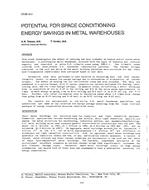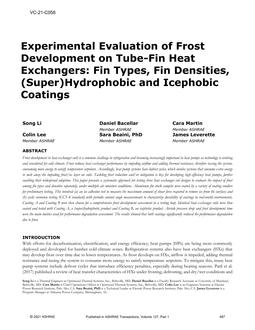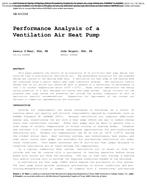An experimental investigation was performed to determine the effect of electrode geometry on electrohydrodynamic (EHD) enhanced boiling of an R123/oil mixture. Three different electrode configurations were tested – straight wire, helical wire, and wire mesh. In each case, the effect of surface heat flux, applied potential, and the lubricant oil concentrations, was studied. It is demonstrated that the mesh electrode yields the best performance, resulting in up to a fivefold increase in heat transfer coefficients when compared to the base case (absence of electric field). For all three electrodes, oil contributes to degradation of enhancements and increases the electric power consumption. However, even in the worst case, the electric power consumption penalty is significantly below the corresponding increase in heat transfer coefficients.
KEYWORDS: electrodes, geometry, electric heat pumps, boiling, refrigerants, R123, oils, lubricants, mixtures, deteriorating, experiment, testing, heat flow, surfaces, performance, heat transfer coefficient, comparing, electricity consumption.
Citation: Symposium, ASHRAE Transactions 1993, Vol.99, pt.1
Product Details
- Published:
- 1993
- Number of Pages:
- 7
- File Size:
- 1 file , 570 KB
- Product Code(s):
- D-18269


